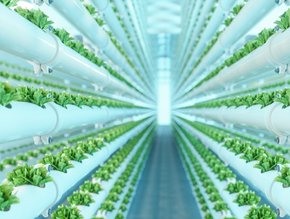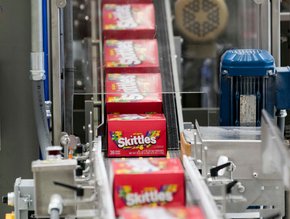Qoa, the foodtech company developing lab-grown chocolate

Food chemist Sara Marquart and her brother Max Marquart founded Qoa with the aim of making chocolate more sustainable, through manufacturing it in laboratories.
With changing consumer demand - such as the rising trend of veganism - Qoa hopes to make lab-grown chocolate ready for the mass-market by 2035.
Lab-grown chocolate will support the environment, vulnerable people and expand the food chain
Motivated by environmental and ethical concerns, Qoa’s mission is to replace cocoa in mass-marketed confectionary products.
The heavy use of cocoa beans comes with dire consequences for people and planet:
- In countries such as Ivory Coast, Ghana, Peru and Ecuador, forests are destroyed for cocoa harvesting
- Up to 1,600,000 children are forced to work on cocoa farms, using of sharp and heavy tools, working night shifts and being exposed to chemicals
- It takes 27,000 litres of water to create 1kg of cocoa - the same amount can grow 34kg of apples
Earlier this year, eight children took legal action against Nestlé, Cargill, Mars, Olam, Hershey and Mondelēz, alleging illegal enslavement in the Ivory Coast, on cocoa plantations which supply these companies.
The eight children are supported by International Rights Advocates (IRA) and claim that there are thousands more children working on other farms for these corporations.
Even if the land used in cocoa farming could be freed up for more sustainable and nutritious crops, slavery persists.
Disrupting the chocolate industry for a sustainable food future
Co-founder Sara is excited about the future of Qoa and the possibilities of where this could take the chocolate industry.
“We love chocolate”, said Sara. “We want to save chocolate for the future. We are dairy-free and vegan. However, we are not certified yet, as we are still in our Research & Development phase.”
CEO and co-founder Max is looking forward to disrupting the 300 year old chocolate industry.
“We’re foodies! We think we need to change the way we eat, drastically”, said Max.
The obvious impact of climate change and the rising popularity of plant-based food has changed consumers' attitudes to food.
Chocolate which does not negatively impact the environment and can ensure staff are treated with dignity, will be welcomed by foodies and flexitarians alike.






